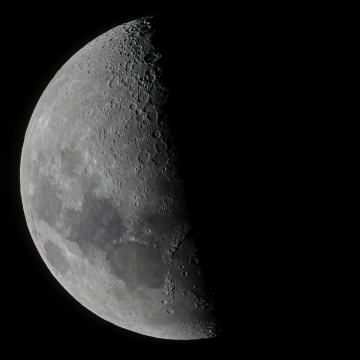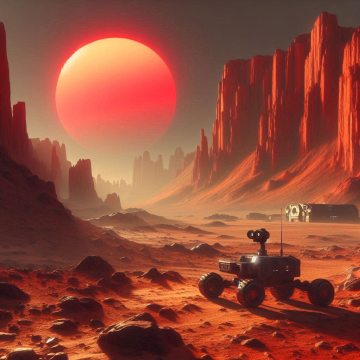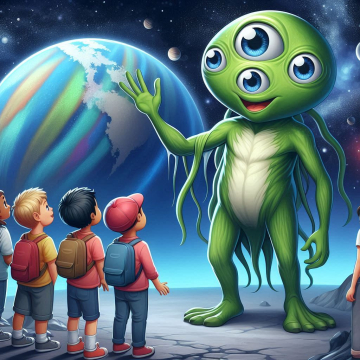The question of how many years left the planet Earth has is a topic of great interest and debate among scientists, environmentalists and society in general. This article explores the different perspectives and factors that influence the future habitability of our planet, including natural changes and those caused by human activity.
The History of the Earth.
Training and Evolution.
The Earth formed approximately 4.54 billion years ago from the accumulation of dust and gas around the Sun. Since then, it has gone through a series of significant transformations, including the formation of the Earth's crust, the emergence of life, and multiple extinction and recovery events.
Era of Complex Life.
Complex life as we know it began to proliferate about 600 million years ago. During this time, the Earth has gone through several geological eras, each marked by different forms of life and climate changes.
Natural Factors That Affect Life on Earth.
The Solar Cycle.
The Sun, Earth's main source of energy, has a finite life cycle. Currently, the Sun is in its main sequence phase and has enough fuel to burn for another 5 billion years before becoming a red giant. In this phase, the Sun will expand and possibly engulf the inner planets, including Earth.
Geological Changes.
Plate tectonics is a continuous process that can influence the habitability of the planet. Tectonic plate movements can cause mountain formation, earthquakes, and volcanic eruptions, events that can have significant impacts on the climate and life on Earth.
Catastrophic Events.
The Earth is also exposed to catastrophic events such as asteroid impacts. Although these events are relatively rare, they have occurred in the past and caused mass extinctions, such as the event that wiped out the dinosaurs about 65 million years ago.
Human Impact on Earth.
Climate change.
One of the biggest challenges today is climate change, driven primarily by human activity. The burning of fossil fuels, deforestation and the emission of greenhouse gases are causing global warming that has adverse effects on ecosystems, climate and biodiversity. According to the Intergovernmental Panel on Climate Change (IPCC), if significant action is not taken to reduce emissions, global temperatures could rise by several degrees Celsius by the end of this century, resulting in serious consequences for life on Earth.
Biodiversity loss.
Human activity is also causing a rapid loss of biodiversity. Habitat destruction, pollution and climate change are driving many species to the brink of extinction. The loss of biodiversity not only affects natural ecosystems, but can also have direct consequences for humans, as we depend on ecosystem services for our survival.
Soil Pollution and Degradation.
Air, water and soil pollution is another critical problem. Toxic chemicals, plastics and other pollutants are negatively affecting human health and the environment. Soil degradation, caused by unsustainable agricultural practices and urbanization, is reducing the planet's ability to produce food and support the growing human population.
Future perspectives.
Technological solutions.
Technology plays a crucial role in mitigating the effects of climate change and finding sustainable solutions. Renewable energies, such as solar and wind, are gradually replacing fossil fuels. Additionally, carbon capture and storage (CCS) is an emerging technology that could help reduce CO2 emissions.
Conservation and Sustainability.
Conservation of biodiversity and promotion of sustainable practices are essential to ensure a liveable future. This includes the protection of natural areas, the restoration of degraded ecosystems and the promotion of sustainable agriculture. Education and public awareness are also crucial to encourage responsible and sustainable behaviour.
Space Colonization.
Some scientists and visionaries, like Elon Musk, believe that space colonization could be a long-term solution for the survival of humanity. The idea is to establish colonies on Mars or other celestial bodies to ensure the continuity of the human species in the event of a catastrophic event on Earth. Although this is an exciting prospect, there are still many technical, ethical and economic challenges to overcome.
Future Scenarios.
Continuation of the Current Path.
If we continue on current trends in resource consumption and greenhouse gas emissions, we are likely to face a future of extreme weather, sea level rise, biodiversity loss, and environmental degradation. This could lead to a collapse of ecosystems and a significant decline in the Earth's ability to support the human population.
Transition to a Sustainable Model.
A more optimistic future implies a transition towards a sustainable development model. This requires a significant change in our policies, economies and behaviors. The adoption of clean energy, the conservation of natural resources, the reduction of waste and the promotion of social justice are key components of this model.
Colonization and Space Expansion.
Although space colonization is a possibility, it is unlikely to be a short-term solution. The technology and resources needed to establish self-sustaining colonies on other planets are still developing. However, research and advancement in this field could offer innovative solutions to the problems we face on Earth.
The question of how many years the Earth has left has no simple answer. From a geological and astronomical perspective, the Earth has billions of years of life ahead of it. However, the habitability of the planet for humans and other life forms is being threatened by our own actions. Climate change, biodiversity loss and pollution are challenges that require immediate and sustained action.
The transition towards a sustainable future is essential to prolong the habitability of our planet. This includes the adoption of clean technologies, the conservation of biodiversity and the promotion of sustainable practices. Furthermore, space exploration could offer new opportunities for humanity, but should not be seen as an excuse to neglect our planetary home.
Ultimately, the fate of the Earth and humanity is in our hands. We have the knowledge and tools to face the challenges before us, but we must act with determination and responsibility to ensure a livable future for generations to come.






